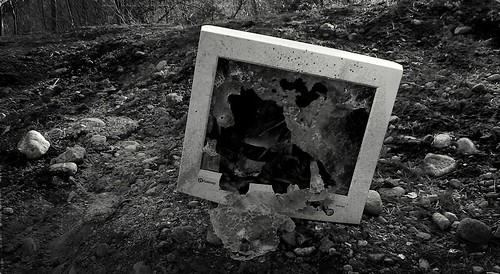
Just before the dawn of the New Year, Marketplace Money’s Eve Troeh hoped to find some silver lining, or at least an optimistic take, on one thing so many Americans now share: the job hunt. What she really seemed to find in her American Public Media report, though, was that unemployment remains as alienating an experience as it is a common one. And, as USC sociologist Karen Sternheimer explained, it’s a cruddy thing for anyone to go through, including the so-called highly-educated unemployed.
“One of the biggest measures of class is something called ‘occupational prestige’,” said Sternheimer. “Part of our status is based not just on how much money we have or make, but on kind of what other people think of what we do.” As Troeh went on, “When professionals lose jobs, then, [Sternheimer] says we’re more likely to blame them—even though we all know that layoffs in recent years happened across the board.”
Echoing Joe Soss’s comments in the Star Tribune, as covered in Citings & Sightings a couple of days ago, Sternheimer affirmed, “There’s still a lot of antipathy towards people who don’t have jobs. The myth of the American Dream says that you’ve either succeeded or failed based on your own merit.” More surprisingly, though, Sternheimer tells Marketplace Money that “her research on the Great Depression shows that in tough times, we cling more closely to that dream, that our own hard work determines our fate, rather than blame bigger economic forces.” This can result in a lot of blame for everyone’s “bad times” being placed on the unemployed themselves. And when you are the unemployed, the depression and alienation compound.
Etiquette, in fact, is where the radio story ended: “Etiquette expert Peter Post at the Emily Post Institute says relationships get ruined over a job loss. Even generous offers have to be made carefully.” This is to say, just as talking salary isn’t usually palatable for Americans, talking no salary is touchy, too. For more tips and/or commiseration, be sure to check out the full report, available online at American Public Media.

Comments